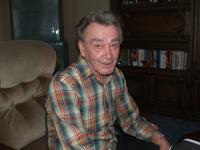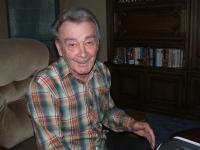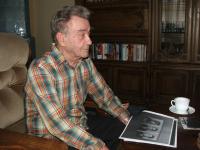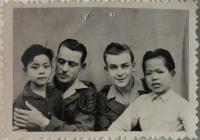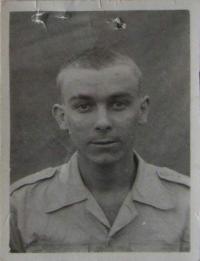“It can’t even begin to be told. The men dropped like flies. There was such an awful lot of them, those Vietnamese.”

Download image
Rudolf Němček was born in 1929 in Závodí u Žiliny in Slovakia as one of seven children. In 1946 he followed his sister and brother to Cheb, where he worked in a textile factory. In 1949 he fled to West Germany, crossed the border to France and joined the Foreign Legion in Marsseille. In the same year he took part in battles in Indochina. A year later, in September 1950, he was taken hostage by Vietnamese soldiers in Dong Khe. He spent eighteen months in captivity and was repatriated in April 1952 along with twenty other Czechoslovaks via China and the Soviet Union. He was held in custody and interrogated in Ruzyně, Pankrác, and Mladá Boleslav. He was finally sentenced to eighteen months imprisonment. After being released he was conscripted for military service with the auxiliary technical battalions (PTP - pomocné technické prapory) in Karviná. He got married and worked in opencast mines and as a maintenance worker in Františkovy Lázně Spa houses. He now lives with his son in Jablonec nad Nisou.
